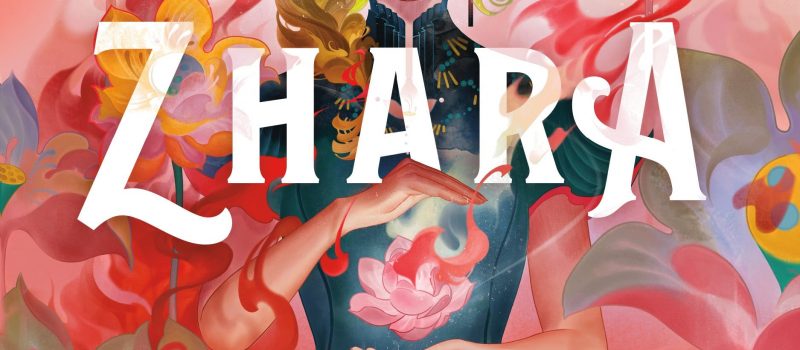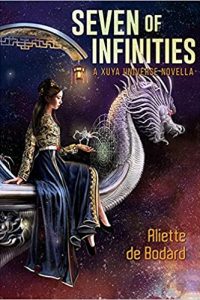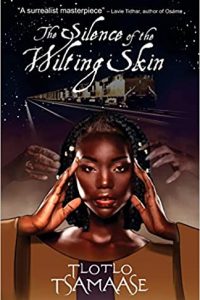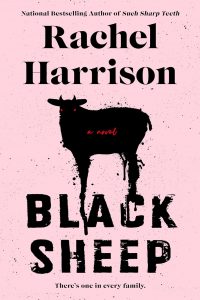Archita Mittra Reviews Maddalena and the Dark by Julia Fine and Guardians of Dawn: Zhara by S. Jae-Jones
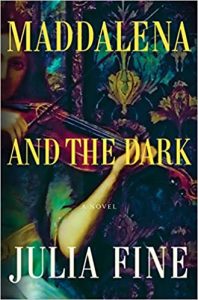 Maddalena and the Dark, Julia Fine (Flatiron Books 978-1-25086-787-2, 304pp, $28.99, hc) June 2023.
Maddalena and the Dark, Julia Fine (Flatiron Books 978-1-25086-787-2, 304pp, $28.99, hc) June 2023.
Maddalena and the Dark by Julia Fine is an exquisite and lyrical imagining of the lives of two girls, Maddalena and Luisa, who meet at a prestigious music school and whose devotion to each other slowly and carefully builds up to a devastating crescendo that unfolds against the decadence of 18th-century Venice. Fine’s prose, delicate and literary, is suffused with metaphors from classical music and the Italian lexicon, and is easily the most magical aspect of this novel.
The plot is fairly simple, but luxuriantly rendered, playing with the twin themes of desire and envy. Luisa is an orphan with some skill at the violin, but no ambitions; she hopes that her musical education will provide some social security, either as a performer or as a maid tasked with the upkeep of the school. Maddalena isn’t an orphan, but her noble family, reeling from a scandal and pulling some strings, sends her to the school for a brief stint to improve her marriage prospects and restore the family’s reputation. Maddalena does not trust the corrupt, patriarchal structures that have dictated her life, though, and instead strikes a dangerous bargain with the sea and the murky and mysterious entity that lurks beneath the waves.
Fine paints a dark but dazzling portrait of friendship and girlhood, capturing the feverish intensity of the two girls’ emotions in luscious, Gothic shades. As they become close, Maddalena creeps to Luisa’s bed each night, where they whisper and dream together, while Luisa notices Maddalena’s occasional disappearances from class when a mysterious gondolier appears at the gates and rows her to a shrine in the sea. I particularly enjoyed how the magic in this story, despite seeping into every page, is never truly explained. It exists as an inexplicable force that unhappy souls like Maddalena can only grasp at, while only realizing in retrospect just how much she’s had to give away to make wishes come true.
Thus, the power balance between the two girls tilts and shifts, constantly in flux; when Maddalena helps Luisa drive a bargain with the water to excel at violin, consequences ensue. Luisa attracts the attention of Antonio Vivaldi and trains under him, while nursing a small crush. Aware of Luisa’s rising fame and growing distance, Maddalena wishes for her best friend to get sick on the night of her debut. Around the same time, Maddalena receives a marriage offer, bringing her brief music schooling to a close, and rather than be parted from her Luisa, she brings the girl to her lavish, aristocratic home under the pretext of convalescence. Maddalena still isn’t in control, for Luisa secretly falls in love with one of Maddalena’s brothers, and her hauntingly beautiful performance invites a marriage offer from Maddalena’s fiancé, driving the other girl to deeper depths of despair.
The narrative unfolds in alternating points of view, allowing the reader to remain in the enviable position of knowing all the secrets and longings of the two characters that they try to hide from each other or surreptitiously parse out. It isn’t quite a sapphic story, but it bristles with queer undertones and slow-burn pining, offering a darkly candid examination of the perils and pangs of unrequited love. Stifled by patriarchal dictates of the crumbling city-state on one side and the magic in the water that grants wishes at a high cost on the other, Maddalena’s slow descent into monstrosity feels inevitable but no less heartbreaking to observe. The ending is grimly satisfying in its own way, although I wished that there was just a little more, perhaps a coda, to their tragic story.
Maddalena and the Dark easily sits alongside Silvia Moreno-Garcia’s novel of manners, The Beautiful Ones, a sweeping and elegantly written tale of love and betrayal, and Eva Ibbotson’s Magic Flutes, another historical romance where a member of the nobility joins in the performing arts. Wistful and haunting, Maddalena and the Dark will appeal to readers with a love for Gothic tales, tragic love stories, and deliciously baroque prose.
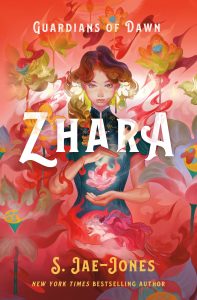 Guardians of Dawn: Zhara, S. Jae-Jones (Wednesday Books 978-1-2501-9142-7, $20.00, 416pp, hc) August 2023.
Guardians of Dawn: Zhara, S. Jae-Jones (Wednesday Books 978-1-2501-9142-7, $20.00, 416pp, hc) August 2023.
Guardians of Dawn: Zhara by S. Jae-Jones is a deliciously fun Cinderella retelling of sorts, filled with magic, action and a heartwarming romance, unfolding in a vividly imagined East Asian-inspired fantasy setting. Written in a light-hearted tone and brimming with joy and hilarity, this book is a far cry from her earlier dark fantasy duology Wintersong and is a reminder of just how effervescent and delightful the fantasy genre can be without steeping into mawkish escapism.
Guardians of Dawn: Zhara takes place in the fictional Morning Realms where magic is outlawed. Our protagonist, Zhara, is an untrained magician who works at an apothecary and lives with her strict stepmother and blind stepsister, Suzhan. Despite her magic, Zhara has few ambitions of her own – she is content with reading romance novels and tends to giggle uncontrollably in the presence of good-looking people. While waiting for the next instalment of the popular romance series The Maiden Who Was Loved by Death, she befriends the handsome Han, who (unbeknownst to her) is actually the Royal Heir. Soon, these two are pulled into an engaging mystery involving demonic possession and a secret society of magicians; naturally, chaos and shenanigans ensue while tender feelings blossom between them.
The story is sweet and rather confidently written, and the best part is that like Zhara’s himbo boyfriend, the author isn’t afraid of being silly, which makes the novel all the more endearing. Much earlier, I’d read Jae-Jones’s debut Wintersong and was impressed by her lush, lyrical language and dark imagination, possibly influenced by The Phantom of the Opera and Jim Henson’s The Labyrinth. In this new series, it seems like the author has distanced herself from all that angst and grimness and is trying out a new, optimistic voice. And it suits her very well, though she does return to her familiar devices of romantic subplots and sibling bonds to bolster the narrative.
Indeed, there are so many little details in Guardians of Dawn: Zhara that make it such an adorable and extremely enjoyable read. Zhara is a relatable character who has accepted her lot in life, and through the course of the novel, learns to fight for her dreams and be true to herself instead of unquestioningly following the dictates of her foster family. Han is an absolute sweetheart, and although the narrative lightly makes fun of him for being ‘‘thick,’’ it’s even funnier that despite all the clues, Zhara can’t quite figure out that he’s royalty until much later. Then, there’s the musical troupe ‘‘The Bangtan Brothers’’ (perhaps a nod to BTS and K-pop fandom) who are also secretly magicians, and use their celebrity status to smuggle citizens from one region to another – their presence in the text is very short-lived but pretty memorable.
The author’s fantastical world is also beautiful enough to get lost in, carefully weaving in folklore and legends with present-day traditions, such as the gloriously decadent ‘‘Night of the Sevens’’ – an annual masquerade in honor of a tragic love story (the tale is also immortalized as a constellation, which is another lovely detail) that’s also perfectly in sync with the novel’s own fairytale flavor. Although the plot is relatively straightforward, it’s a pleasure to witness how the Cinderella elements play out in surprising ways. Perhaps the only issue that I had with the text (and this is nitpicking) was that Han’s best friend and sidekick, Xu, comes off as rather one-dimensional – even after they discover some devastating news about their parent, they continue to support the prince, without eliciting any strong reaction, which seemed rather unbelievable to me.
On the whole, though, S. Jae-Jones’s latest book is a well-paced adventure novel, packed with enough humor, action and romance that reminded me of the sheer exhilaration of randomly picking a fantasy novel from a pile of books as a kid and escaping to a wondrous world where the stakes were high but everyone got a happy ending. Guardians of Dawn: Zhara appears to be an enchanting start to a promising new series and is sure to appeal to lovers of fairytale retellings and playful fantasy books written with heart, candor, and just the right amount of silliness.
Archita Mittra is a writer and artist, with a fondness for dark and fantastical things She completed her B.A (2018) and M.A (2020) in English Literature from Jadavpur University and a Diploma in Multimedia and Animation from St. Xavier’s College.
When she isn’t writing speculative fiction or drawing fanart, she can be found playing indie games, making jewelry out of recycled material, reading a dark fantasy novel, baking cakes, or deciding which new Tarot deck to buy.
She lives in Kolkata, India, with her family and rabbits.
This review and more like it in the October 2023 issue of Locus.
 While you are here, please take a moment to support Locus with a one-time or recurring donation. We rely on reader donations to keep the magazine and site going, and would like to keep the site paywall free, but WE NEED YOUR FINANCIAL SUPPORT to continue quality coverage of the science fiction and fantasy field.
While you are here, please take a moment to support Locus with a one-time or recurring donation. We rely on reader donations to keep the magazine and site going, and would like to keep the site paywall free, but WE NEED YOUR FINANCIAL SUPPORT to continue quality coverage of the science fiction and fantasy field.
©Locus Magazine. Copyrighted material may not be republished without permission of LSFF.


